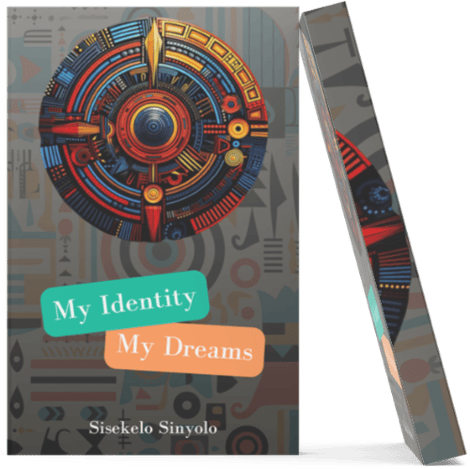I wrote a book about identity
6/12/20243 min read


Embarking on a journey to become a proficient data analyst involves more than mastering technical skills like Python or learning how to manipulate data sets in Excel and Tableau. In my case, a significant part of my growth stemmed from an unexpected source: writing my book, My Identity, My Dreams. This creative and deeply personal project not only shaped my understanding of identity and history but also refined key skills essential to my data analytics career.
The Parallel Journey: From Writing to Analyzing
At first glance, writing a book and analyzing data may seem like unrelated activities. However, through the process of researching, structuring, and writing My Identity, My Dreams, I developed crucial skills that directly influenced my approach to data analytics. Here’s how:
1. Structured Thinking and Problem Solving
Writing a book requires a clear and logical structure, just as data analysis demands a methodical approach to problem-solving. While crafting my chapters, I had to break down complex ideas about identity, African history, and diaspora experiences into digestible sections. This mirrors the data analytics process, where large datasets must be systematically explored to identify trends, patterns, and insights.
By carefully structuring my narrative, I honed my ability to think logically and systematically — a skill that translates directly to working with data. Whether writing code in Python or building a report in Power BI, I now approach problems with a structured mindset, ensuring my analysis is thorough and well-organized.
2. Data Collection and Research Skills
To write about historical and social topics in my book, I delved into a wide range of research, from European historians to African American scholars. This rigorous process taught me how to sift through massive amounts of information, identify credible sources, and synthesize findings into meaningful conclusions.
In the same way, data analysts must collect, clean, and process large amounts of raw data before extracting insights. The skills I developed in researching for my book have been invaluable in my data analysis work. Now, when I approach a dataset, I can quickly identify the relevant information, make sense of it, and present it in a meaningful way.
3. Understanding the Importance of Context
In my book, I explored themes of identity, home, and diaspora, all within specific historical and social contexts. Context is key to understanding and interpreting stories, much like how context is crucial in data analytics. Data alone is meaningless without understanding the context behind it. For example, sales figures in isolation don’t tell the full story until you consider factors like market trends, seasonality, or economic conditions.
Through writing about identity, I learned the importance of providing context for my findings. As a data analyst, this skill helps me ensure that my analyses are not just accurate but also meaningful, allowing me to deliver insights that are actionable and relevant.
4. Storytelling with Data
The process of writing My Identity, My Dreams taught me how to tell a compelling story. I had to take my personal experiences and research and turn them into a narrative that would engage readers. Similarly, one of the most important aspects of data analysis is storytelling — turning numbers into a story that stakeholders can understand and act upon.
Now, when I present data findings, whether through a Tableau dashboard or a Python visualization, I focus on the narrative. I aim to guide my audience through the data in a way that makes the insights clear and impactful, much like how I guided readers through my book.
Conclusion: A Holistic Approach to Learning
My journey to becoming a data analyst has been enriched by the experience of writing My Identity, My Dreams. The book helped me improve not only my technical skills but also the softer, yet equally important, skills of structured thinking, research, contextual analysis, and storytelling. As I continue to grow in the field, I bring with me the lessons learned from both the written word and the world of data, blending them into a unique and holistic approach to problem-solving.
For anyone looking to advance their technical skills, I encourage exploring outside of the traditional tools and textbooks. You might find, as I did, that personal projects like writing a book can provide unexpected and valuable lessons on your journey.
